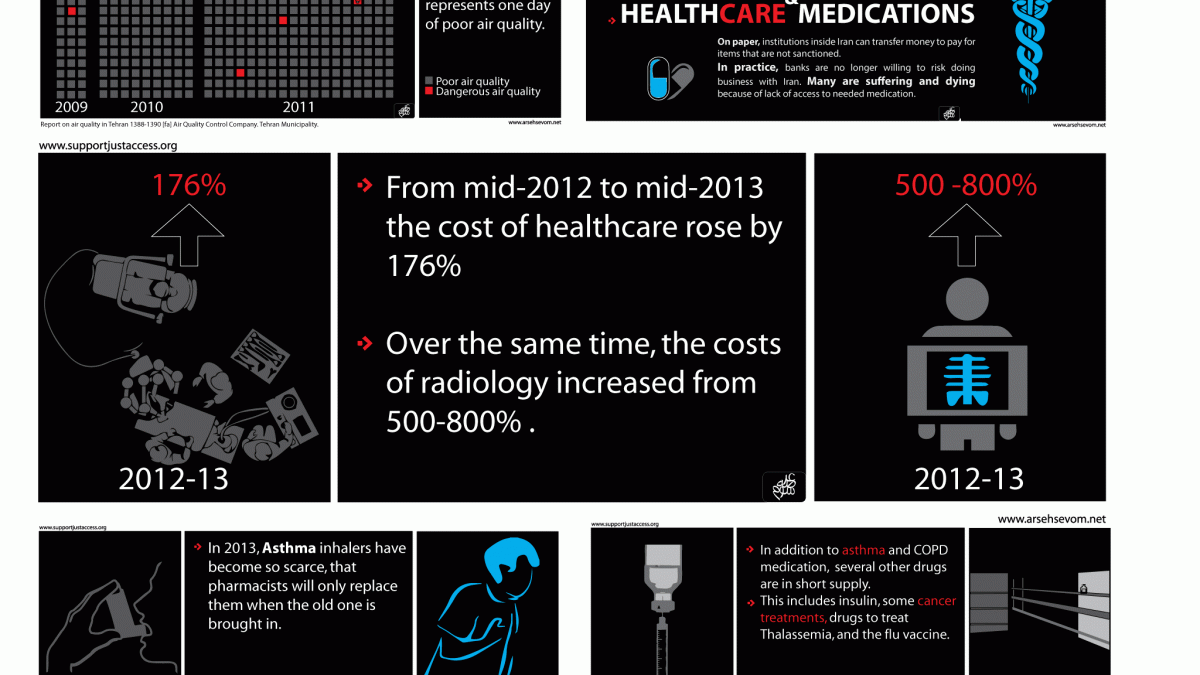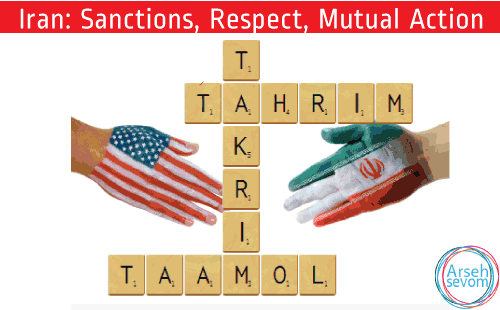
#Iran: Can Word Games Lead to Action and Real Change
September 9, 2013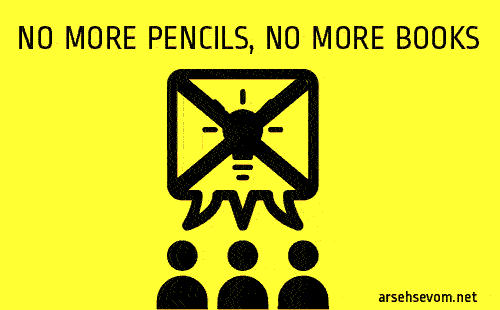
US Sanctions Law Shuts Down Online Courses in #Iran
January 29, 2014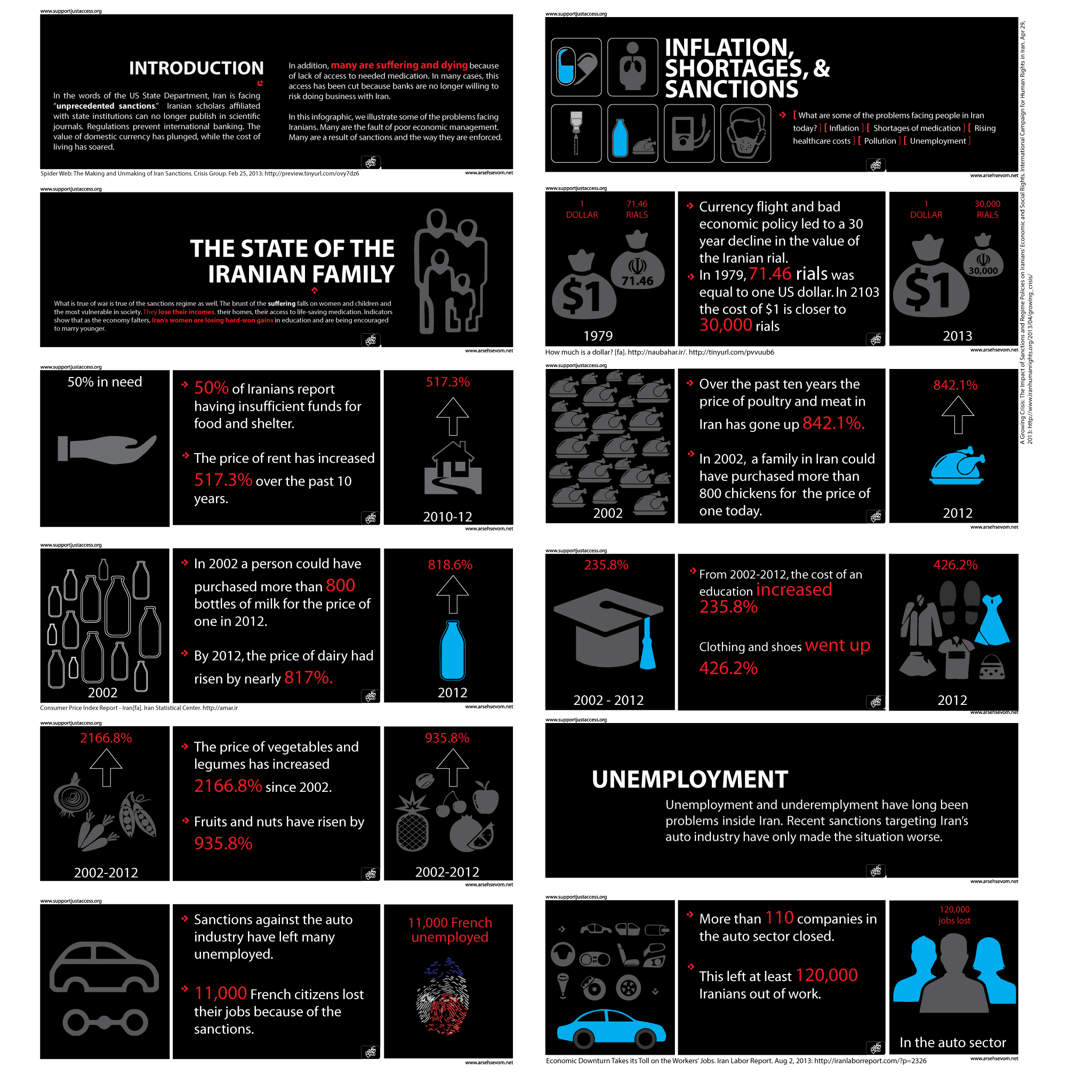
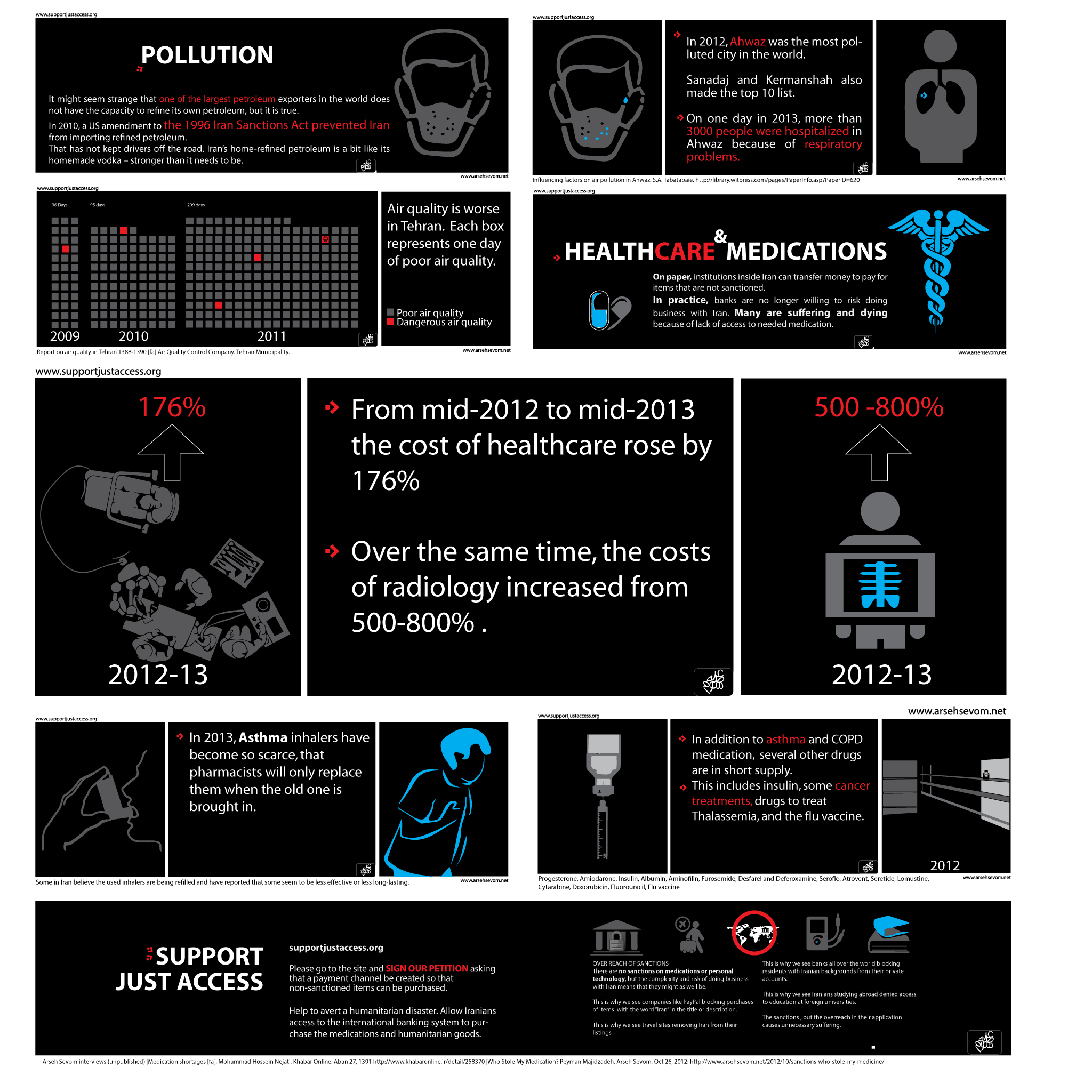
THE PROBLEM
Until recently, all of Iran’s economic problems could be traced to its own mismanagement of the economy. Sanctions since 2008 have begun to affect the health and livelihoods of the nation’s most vulnerable.
This is true despite the fact that many of the issues facing Iranians are not technically sanctioned.
There are no sanctions on medications or personal technology, but the complexity and risk of doing business with Iran means that they might as well be.
This is why we see companies like PayPal blocking purchases of items with the word “Iran” in the title or description.
This is why we see travel sites removing Iran from their listings.
This is why we see banks all over the world blocking residents with Iranian backgrounds from their private accounts.
This is why we see Iranian students denied access to education at foreign universities.
The sanctions are harsh, but the overreach in their application causes unnecessary suffering.
VERY QUICK ECONOMIC OVERVIEW
There are many reasons Iran’s economy is in the tanker. Currency flight and bad economic policy led to a thirty year decline in the value of the Iranian rial that resembles a dive off of a skyscraper.
In 1979, 71.46 rials was equal to one US dollar. In 2103 the cost of $1 is closer to 30,000 rials.
During his term in office, Iran’s president Mahmoud Ahmadinejad eliminated the office of the national budget. There was no national budget. During his term subsidies on many basic needs were eliminated. Loans were distributed without analysis. Money disappeared from the country including a boatload stuffed with tons of gold and dollars that was confiscated in Turkey in 2008.
While poor economic and political management are at the heart of the fall in the value of Iran’s currency, recent sanctions (July 2013) imposed by a US Executive Order of the president are designed to destroy Iran’s currency.
“The idea is to cause depreciation of the rial and make it unusable in international commerce,” says David Cohen, the Treasury Department’s undersecretary for terrorism and financial intelligence.
THE STATE OF THE IRANIAN FAMILY
50% of Iranians now say they are unable to provide appropriate levels of healthcare and shelter for their household.
Over the past ten years:
The price of vegetables and legumes has increased 2166.8%
Dairy products have gone up 818.6%
Meat and poultry has risen 842.1%
Rent has increased 517.3%
Education has increased 235.8%
Clothing and shoes have gone up 426.2%
12% of households are now being led by women, up 100% from five years ago.
JOB LOSSES
Unemployment and underemployment has been high for decades in Iran. With youth accounting for 70% of the unemployed.
Recently “unprecedented sanctions” have been responsible for suffering among the most vulnerable in Iran.
Sanctions against the auto industry have left many unemployed. Eleven thousand French citizens lost their jobs because of the sanctions, with reports of at least 120,000 Iranians.
POLLUTION
It might seem strange that one of the largest petroleum exporters in the world does not have the capacity to refine its own petroleum, but it is true.
In 2010, a US amendment to the 1996 Iran Sanctions Act prevented Iran from importing refined petroleum.
That has not kept drivers off the road. Iran’s home-refined petroleum is a bit like its homemade vodka – stronger than it needs to be.
Tehran has seen its air quality deteriorate over the past ten years.
And while it used to be among the top 5 most polluted cities in the, it has now dropped out of the top ten. That doesn’t mean the air got cleaner in Tehran. It means the air got worse in other cities.
Three Iranian cities make it into the top ten most polluted cities in the world, with Ahwaz making it to the number one spot.
On one day in November 2013, more than 3000 people were admitted into hospitals in Ahwaz complaining of respiratory problems.
MEDICATION AND HEALTHCARE
In 2012, Iranians were no longer able to make international payments this led to shortages in many items, including medication.
Drug Shortages
| Drug | Use |
| Progesterone | Contraceptives |
| Amiodarone | Heart disease |
| Insulin | Diabetes |
| Albumin | Blood diseases and cancer. |
| Aminofilin | Treatment of asthma |
| Furosemide | Diuretic for heart patients |
| Desfarel and Deferoxamine | Used to prevent iron overload in patients Thalassemia |
| Seroflo | Asthma treatment |
| Atrovent | Asthma treatment |
| Seretide | Asthma and COPD preventative |
| Lomustine | Chemotherapy in brain tumors, gastrointestinal tract, lung, kidney ,and breast |
| Cytarabine | High dose chemotherapy in the treatment of cancer and leukemia |
| Doxorubicin | One of the the most important anticancer drugs in the treatment of cancer |
| Fluorouracil | Helps treat gastric and colorectal cancer |
| Flu vaccine | Prevention of flu |
At a time when respiratory problems are at an all-time high, medication treating it is on short supply. Asthma inhalers have become so scarce that to prevent hoarding pharmacists will only replace them when the old one is brought in.
Some in Iran believe the used inhalers are being refilled and have reported that some seem to be less effective or less long-lasting.
This scarcity is also affecting victims of chemical attacks launched by Saddam Hussein during the Iran-Iraq war.
Asthma medication is not the only medication proving difficult to find.
In 2007 a generic asthma steroid inhaler cost 10,500 rials. Now it costs 900,000 rials. The only inhalers on the market now are out of date.
Radiology treatments increased by 500-800% in one year.
Meanwhile, in some rare positive news, while many cancer treatments are in short supply, a number of patients who have been sourcing medication overseas have recently begun receiving life-saving medication inside Iran without fees.
Selected Sources:
Pollution
Influencing factors on air pollution in Ahwaz. S.A. Tabatabaie http://library.witpress.com/pages/PaperInfo.asp?PaperID=620
Report on air quality in Tehran 1388-1390 [fa] Air Quality Control Company. Tehran Municipality.
Economic Indicators
How much is a dollar? [fa]
http://naubahar.ir/1392/07/01/%D9%82%DB%8C%D9%85%D8%AA-%D8%AF%D9%84%D8%A7%D8%B1-%DA%86%D9%82%D8%AF%D8%B1-%D9%BE%D8%A7%DB%8C%DB%8C%D9%86-%D9%85%DB%8C%E2%80%8C%D8%A2%DB%8C%D8%AF%D8%9F/
Consumer Price Index Report – Iran[fa]. Iran Statistical Center. http://amar.ir
Sanctions
Spider Web: The Making and Unmaking of Iran Sanctions. Crisis Group. Feb 25, 2013 http://www.crisisgroup.org/en/regions/middle-east-north-africa/iraq-iran-gulf/iran/138-spider-web-the-making-and-unmaking-of-iran-sanctions.aspx
A Growing Crisis: The Impact of Sanctions and Regime Policies on Iranians’ Economic and Social Rights. International Campaign for Human Rights in Iran. Apr 29, 2013.
Sanctions and Regime Policies Cause Growing Crisis in Iran
Joblessness
Economic Downturn Takes its Toll on the Workers’ Jobs. Iran Labor Report. Aug 2, 2013 http://iranlaborreport.com/?p=2326
Healthcare and Medications
Arseh Sevom interviews (unpublished)
Medication shortages [fa]. Mohammad Hossein Nejati. Khabar Online. Aban 27, 1391 http://www.khabaronline.ir/detail/258370
Who Stole My Medication? Peyman Majidzadeh. Arseh Sevom. Oct 26, 2012 https://www.arsehsevom.org/en/2012/10/sanctions-who-stole-my-medicine/


